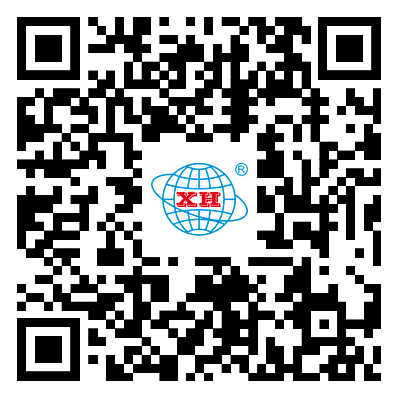What are the common control unit failures and solutions for motor motor rotor manual six-station double flying fork winding machine?
Motor motor rotor manual six-station double flying fork winding machine common control unit failure and solutions are as follows:
1, controller failure
Failure phenomenon: the winding machine can not start or suddenly stop during operation, the display does not show or show error codes; control parameters can not be set or saved normally, resulting in the winding process parameters are wrong.
Possible causes: controller internal circuit failure, such as capacitor damage, chip burnt, etc.; unstable power supply, there are voltage fluctuations, phase or short circuit and other problems; controller and other parts of the connecting wire loose, poor contact or damage; controller software program errors or failures.
Solution: Check the power supply to ensure stable voltage, three-phase balance and no short-circuit phenomenon, if there are problems in time to repair or replace the power supply; check the controller and the connection between the components of the line, re-plugging and ensure that the connection is firm, for the replacement of damaged lines; if you suspect that the controller hardware failures, the use of professional testing equipment for its detection, to determine the failure of the components and replace them; such as software program problems, you can try to reset the controller and other parts of the connection line, poor contact or damage; controller software program errors or failures. If there is a problem with the software program, try to reset or reprogram the controller and update the software version to the latest.

2、Driver failure
Failure phenomenon: the running speed of the flying fork or other moving parts is unstable, sometimes fast, sometimes slow or unable to reach the set speed; the drive alarm, displaying over-current, over-voltage, overheating and other fault information; inaccurate control of the position of the moving parts, deviation or jitter.
Possible reasons: the drive parameters are not set reasonably, such as speed, acceleration, current limit and other parameters do not match the actual load; drive heat dissipation is poor, resulting in high internal temperature, affecting the performance; drive and the motor between the connection between the loose, short-circuit or disconnection; the drive itself electronic components are damaged, such as power tubes, rectifier bridges and so on.
Solution: According to the characteristics of the motor and load, readjust the parameters of the drive to ensure that it matches the actual operating requirements; check the drive cooling fan, heat sink and other heat dissipation devices, clean up dust, debris, to ensure good heat dissipation; check the connection line between the drive and the motor to repair loose, short-circuit and other problems, such as damage to be replaced in a timely manner; the use of professional tools on the drive test to determine the damaged electronic components and replace them.
3, counter failure
Failure phenomenon: inaccurate counting of winding turns, and the actual number of winding turns does not match; counter does not work, can not be counted; counter display abnormalities, such as garbled code, flashing, etc. 1.
Possible causes: the counter sensor is damaged or poor induction, unable to accurately detect the number of turns of the winding; the counter's connection line is loose, poor contact or broken; the counter's internal circuit failure, such as chips, resistors, capacitors and other components are damaged; the counter's setup parameter is wrong, and the requirements of the winding process does not match.
Solution: check the counter sensor, clean the sensor surface to ensure that the sensor is normal, if damaged, then replace it; check the counter's connection line, re-plug and ensure that the connection is firm, repair or replace the damaged line; the internal circuit of the counter to detect, find and replace the damaged electronic components; check the counter's setup parameters, according to the requirements of the winding process for the correct settings.
4、Temperature controller failure
Failure phenomenon: unable to accurately measure and control the temperature of the key components of the winding machine, resulting in overheating of the components; the temperature display is abnormal, and the actual temperature does not match; the temperature controller can not normally set the temperature value or alarm temperature value.
Possible causes: temperature sensor damage or aging, resulting in inaccurate measurement of temperature; temperature controller and the temperature sensor between the connecting wire loose, poor contact or damage; temperature controller of the internal circuit failure, affecting the processing and control of temperature signals; temperature controller set the parameters of the wrong, such as temperature units, alarm thresholds, etc. improperly set.
Solution: Replace the damaged or aging temperature sensor to ensure accurate temperature measurement; check the connection line between the temperature controller and the temperature sensor to ensure a reliable connection, if any problem timely repair or replacement; the internal circuit of the temperature controller for testing and repair, replacement of faulty electronic components; check and reset the parameters of the temperature controller, to ensure that it is in line with the actual demand.
5、Communication failure
Failure phenomenon: the control unit and the host computer or other equipment can not be normal communication between the data transmission is interrupted or error; communication interface indicator does not light or flashing abnormally; winding machine can not receive or execute the instructions sent by the host computer.
Possible reasons: damaged, short-circuited or broken communication lines, such as network cable, serial port cable, etc.; loose, poor contact or damage to the communication interface; inconsistent communication protocol settings, resulting in the inability to communicate normally between the devices; the control unit or the communication software of the host computer is faulty.
Solution: Check the communication line, repair or replace the damaged line to ensure that the communication line is connected properly; check the communication interface, re-plugging and ensure that the connection is firm, and replace the damaged interface; check the communication protocol settings of the control unit and the host computer to ensure that they are consistent; check the operation of the communication software, and if there is a failure, try to reinstall or update the communication software.
※ If the above ways and means still can not solve the equipment failure, please contact Xinhui mechanical and electrical equipment through the page chat tool to seek help.







